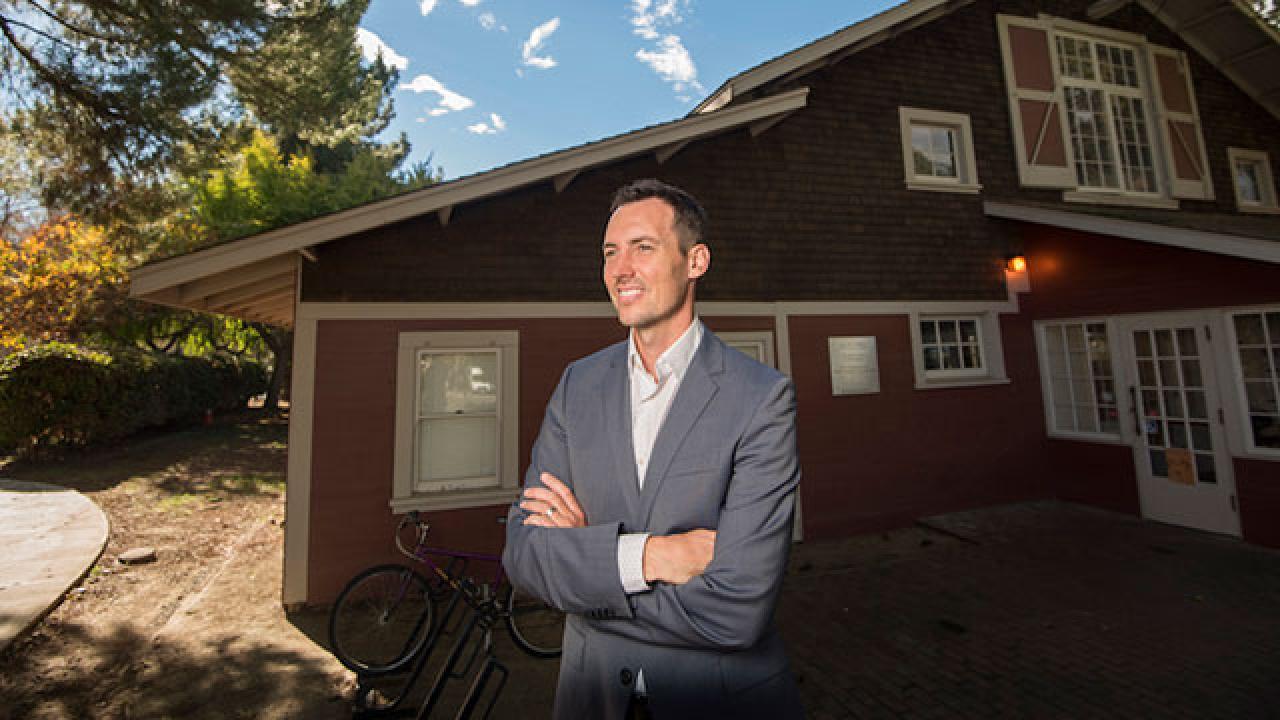
Benjamin Z. Houlton
How do you define faculty leadership?
If you ask 100 people, you might get 100 different answers. But for me, I focus on values and the principles behind leadership, such as humility, being a good observer, asking questions, and empowering individuals. Those are the complement of traits I found are most beneficial in for leadership. But my definition of leadership is always evolving. My definition today will not be the same tomorrow, and that is the exciting part about being in this kind of position – you’re iterating, getting new information, making mistakes, collecting data, and always learning. And through that process, true leadership starts to emerge. Leadership is not something you are born with, but something you aspire to and work at on a daily basis.
Can you share an example of when you've been able to influence positive change as an academic leader?
To be a good leader, I have found you have to make yourself really small. If you make yourself big, people do not want to cooperate and collaborate. So, what I try to do is put myself second. I have found ways to bring diverse experts to solve our shared challenge of climate change. It has been a fascinating and exciting opportunity to show positive change as an academic leader at UC Davis.
Tell us about your experience with leadership development programs, or if you have not participated in any, what you would hope to gain from doing so.
My preparation for faculty leadership has been largely baptism by fire. I have not had a direct, formalized pathway to leadership. Instead, I have built my own research program, taught students and worked on a lot of issues that cut across different disciplines. And through that, I have started to generate my own understanding of what leadership is all about. I have also reached out to mentors, who have a lot more experience than I do and that is something I value very deeply. But a formal support structure to allow for the best to come to leadership positions is not optimized at this point, and that is something I think we could work on together.
How does strong leadership from Faculty impact the University of California?
Strong faculty leadership impacts the University of California in an untold number of ways. The University of California is uniquely structured for outreach. As a land-grant institution and a world-leading public institution, that makes us fundamentally different. Faculty leadership critical to this kind of system. Faculty are engaging with their scholars, stakeholders outside the university, and the media. They are bringing the information they have to the public, so the public can make better decisions and develop a more informed society. They are so many ways, it is hard to actually count.
What would you say to Faculty hard pressed to find time to participate in leadership workshops or other programming?
I identify a hundred-percent with feeling like you do not have enough time in the day to make all of the ends meet. To do your research program, your teaching program, and now a big leadership position. It requires self-sacrifice. Imagining oneself as a servant to society, it allows you to continue to find ways to navigate the very complex challenges of a busy schedule.
